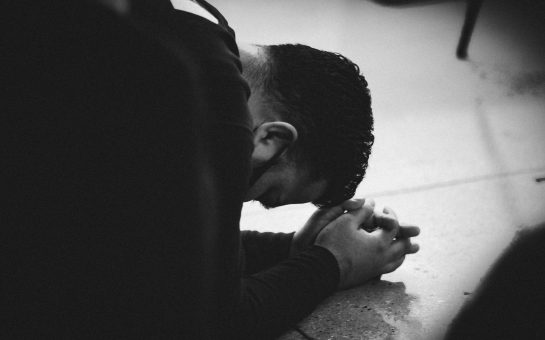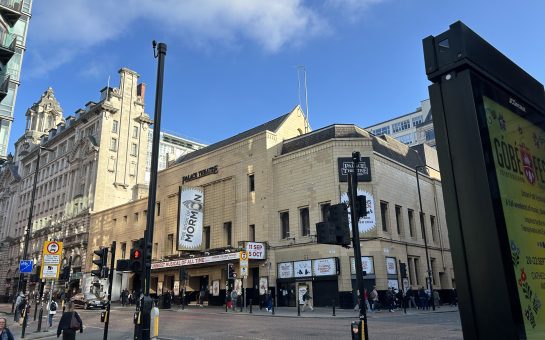The rise in anti-Semitic attacks and sentiment across Manchester, the UK, and beyond is due to a ‘troubling absence of knowledge’ about Judaism, according to Jewish community leaders.
In 2014, the UK recorded the highest number of anti-Semitic attacks in three decades, with further shocking research published yesterday revealing that nearly half of the population agreed with anti-Jewish statements.
Police have now stepped up patrols across the UK after Britain’s top counter-terror officer claimed there was a ‘heightened concern’ over the terror risk.
Dr Jean-Marc Dreyfus, a Frenchman and Holocaust lecturer at the University of Manchester, was in France during the attacks on satirical magazine Charlie Hebdo last week.
The terrorist attack on the magazine’s offices in central Paris by Islamist gunmen claiming to represent Al Qaeda in the Yemen left 12 dead and 11 injured, with a targeted follow-up attack on a Jewish kosher supermarket causing four more fatalities.
The editor of the Jewish Chronicle, Stephen Pollard, claimed that France leads the world in anti-Semitism and even cited an ‘exodus’ of Jews leaving the country.
“Every single Jew I know has either left or is actively working out how to leave,” he said.
Dr Dreyfus believes Britain faces a similar problem to France.
“The problem for years has been that in some districts in Paris and in France populated typically by the working class – working class Jews living with working class people from different backgrounds – there has been a feeling of terror, but a kind of low-level terror.
“It’s about the same feeling as in the UK – small incidents, remarks in the street, remarks about Israel and Palestine. So this is on one side. On the other side, and I don’t think it is similar, you have very well organised terror attacks committed by France where they’ve been trained and armed by Al Qaeda.
“They are two different phenomenons. The danger would be to merge those two phenomenons and see them as one.”
The Community Security Trust (CST) is the body responsible for monitoring anti-Jewish hate crime in the UK as well as assisting with securing buildings and places of worship.
Dave Rich, deputy director of communications at the CST, said that in cooperation with police they have stepped up their efforts to guard Jewish locations in response to last week’s attacks in Paris.
Mr Rich said: “People are worried. They have seen what has happened in Paris as an indication of how things could potentially get here if the situation gets worse.
“Things are not the same in Britain as they are in France – there is not the same level of hostility or day-to-day anti-Semitism. But there is an element of fear that it could happen here and we must do our utmost to unite and stand against it.”
This week’s publication of YouGov survey results showed the state of national attitudes held towards British Jews on topics ranging from power in the media to loyalty to Britain.
The study was commissioned by the Campaign Against Anti-Semitism (CAA), a network of activists in the UK who warned Britain is at ‘tipping point’ and that hatred against Jews will continue to grow unless met with ‘zero tolerance’.
Among the stereotypes questioned was the link between Judaism and finance, with the survey finding that one in four Britons believe that ‘Jews chase money more than other British people’ – a figure which rose to 39% for those participants who identified themselves as Ukip voters.
Other findings showed men were more likely than women to agree with at least one of the anti-Semitic statements put towards them, and revealed that while only a third (30%) of Scots believed at least one of the stereotypes, almost one in two (49%) Northerners held anti-Semitic prejudices.
The CAA hailed the results as a ‘wake-up call’, revealing in their own separate survey of British Jews that over half (54%) feared they had no future in the UK and that a quarter had considered leaving the country in the last two years.
Jonathan Sacerdoti from the CAA said: “Jewish people have contributed to almost every part of British life, yet rising anti-Semitism here and across Europe means that now more than ever Jews are afraid.
“Some are even reconsidering their future here. British values of tolerance and pluralism must be upheld, so that minority groups like Jews feel comfortable and protected.”
Dr Dreyfus added: “You have a lot of unease and a lot of discussion about leaving France, which is very new. Many Jews ask ‘should I stay, or should I go somewhere else?’, mostly Israel.”
Last summer’s protests across Manchester against Jewish businesses, particularly towards cosmetics retailer Kedem on King Street, have been accused as anti-Semitic, and one north west Israel support group has called for them to be made illegal.
Raphi Bloom, co-chair of North West Friends of Israel, said: “The government, police and local authorities cannot ignore anymore the role that the Boycott, Divestment and Sanctions (BDS) movement plays in stoking the fires of anti-Semitism.
“By organising protests outside Jewish shops that overtly tell the owners, staff and shoppers themselves that they are ‘child murderers’, have ‘blood on their hands’ and are ‘Zio Nazis’ or ‘Nazis’, the BDS movement is guilty of engaging in, and encouraging, anti-Semitism.”
Dr Dreyfus disagrees with a blanket ban on protests outside Jewish businesses, instead suggesting that education, rather than legislature, is the way forward.
“You need to maintain free speech but you also need to talk to [protestors] and remind them of the global context. You cannot just go there and attack and protest Israel.
“It’s especially true with regards to most of the protestors’ targets, he said. “All over Europe, shops selling Israeli products, but also Jewish shops and kosher shops are being targeted by pro-palestinian protestors.
“It is blurring everything: when a kosher shop is attacked, how Israeli is it? It’s a case of blurring the lines when we really need to clarify the debate.”
Last year the CST recorded a 36% rise in anti-Semitic attacks in the first six months prior to Israel’s assault on Gaza, dubbed Operation Protective Edge. Between July 8 and August 27, more than 2100 Palestinians were killed, nearly 30 times as many as the total of Israeli fatalities.
In July, when Operation Protective Edge was at its height, London saw the highest-ever levels of hate crime, of which more than nine-tenths was aimed at Jews.
Dr Dreyfus said: “What I hear from my students is a very troubling absence of knowledge about the conflict, about Israel, about the history of Israel, about the Holocaust and its relation to the creation of Israel.
“I think we should educate more about Israel and the Holocaust and again, clarify everything. Everything is so blurred, so mixed up.”
Image courtesy of John Williams, with thanks.



